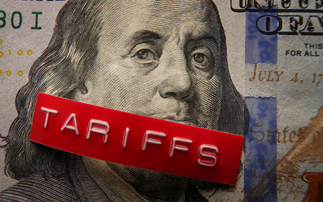On 18 September, most people over the age of 16 who live in Scotland will have the opportunity to tick yes or no against the question "Should Scotland be an independent country?"
Recent opinion polls indicate 60% of those who do not class themselves as 'Don't Knows' will reject the proposition. Including undecided voters, who account for around 15% of the electorate, about 50% of voters are against an independent Scotland. On this basis, it looks highly unlikely the forts on Hadrian’s Wall will have to be converted into immigration and customs check-points.
Nonetheless, the alternative outcome is by no means impossible, and it is important we take time to identify some of the potential consequences. Ideally, we would be able to compile some sort of profit and loss statement that could be tallied in order to determine whether Scottish independence would be a good thing financially, either for Scotland itself, or for the rest of the United Kingdom.
Unfortunately, this is not feasible, in large part because we do not have anything close to a full understanding of the consequences of a 'yes' vote, many of which would be determined by politicians after the event. One of the biggest issues is whether Scotland would be forced to leave the EU. With other countries, such as Spain, themselves having dissenting regions, this is a highly politically charged issue. However, at the very least, Scotland will have to renegotiate its position.
Could Scotland suffer a brain-drain, with younger talent being attracted by the bright lights of the south and elsewhere?
EU membership is linked to the issues surrounding the currency. Would Scotland be allowed to remain within the sterling area? If it were, it would have to accept monetary policy being run for the benefit of England, Wales and Northern Ireland (some Scots might argue that Scotland has little influence, in any case). Alternatively, were it to remain in the EU, Scotland could look towards adopting the euro. However, this would have significant implications for cross-border trade within the British Isles.
This leads on to another area of uncertainty: how would Scottish-based businesses with substantial proportions of their activities south of the border react? Differing tax regimes and an element of currency uncertainty might be manageable for manufacturers, but they might prove more problematic for some financial companies.
Quite a large part of the banking industry, which has been considered domestic in the UK context, would presumably be reclassified as 'foreign' by the Bank of England – with yet-to-be resolved implications for financial regulation. Outside the banks themselves, Scotland has a large savings and pensions industry that would have to consider whether an 'offshore' domicile, vis-à-vis its business in the new United Kingdom, would be viable in the longer term.
Another big area of uncertainty relates to the public sector. There have been many miles of column inches devoted to whether Scotland would be a winner or loser were it to have full control over its own public finances. Published numbers for 2012 show that Scotland has 8.3% of the UK’s population, but enjoys a 9.3% share of public spending. So, this supports the contention that the Scots benefit from higher per capita spending. But, including Scotland’s full geographical share of North Sea revenues, it contributes 9.1% of the total tax take. Without North Sea revenues (which are shrinking), its contribution falls to 8.2%.
While politicians spend a huge amount of time debating this subject, it is probably of lesser importance. To begin with, Scotland might find itself a small net winner or loser, but those in favour of independence would certainly argue that having full control over revenue and spending decisions would be the major benefit.
Even so, the cost of running state institutions would definitely be more burdensome to a small country, and there is a risk the tax base would shrink if companies or people were to relocate their activities. In addition, there could be issues arising from Scotland’s ability to access international capital markets. And finally, there is the thorny issue of allocating the national debt, including that associated with the banking crisis.
What is impossible to gauge is the impact of independence on national psychology. If it turned out that the majority of Scots supported independence, would there be a resulting longer-term performance dividend (possibly helped by inwards investment) that was reflected in improved growth? Alternatively, could Scotland suffer a brain-drain, with younger talent being attracted by the bright lights of the south and elsewhere?
The one thing that is self-evident is that Scottish independence would cause huge uncertainty, and could be very disruptive for a prolonged period. While in the immediate aftermath of the vote, this could have an impact on sterling and other financial markets south of the border (potentially, for instance, pushing up bond yields and, consequently, government funding costs), investors have an uncanny knack for seeing through to the real issues.
In this context, Scotland’s economic size is relevant: it accounts for 7.7% of total UK gross value added. This means uncertainty in the aftermath of an independence vote would be appreciably more damaging to the Scottish economy, and would probably be much longer lasting.
While the majority of the old United Kingdom would continue sailing in the same direction, even short-term uncertainty could prove very costly to the Scottish economy, with the most obvious hit being to fixed capital investment. There would also be a risk of capital flight.
Finally, there are political consequences. It is interesting to observe that even in the 2005 general election, the Conservatives achieved more votes in England than Labour. For the UK ex-Scotland, Labour’s percentage of the vote in 2005 was less than 1% ahead of the Conservatives’. In 2010, for the UK ex-Scotland, the Conservatives’ percentage of votes was 10% ahead of Labour’s, and the Conservatives had an outright 21-seat majority.
Of course, no political leader is going to enjoy a Scottish vote in favour of independence taking place on his or her watch. However, such a vote would have a big impact on the political landscape in the rest of the UK, and on a purely statistical basis, it seems one of the major parties has rather more to lose than the other.
Richard Jeffrey is chief investment officer at Cazenove Capital Management













